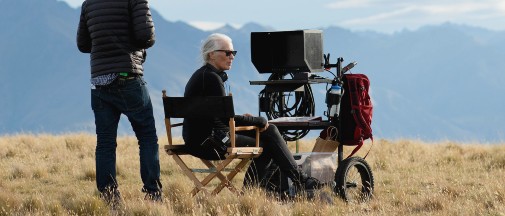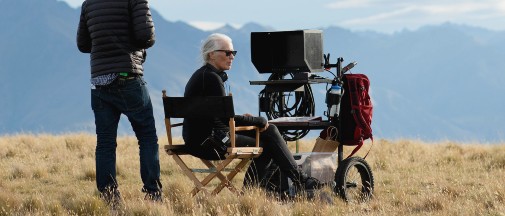Craig here with Take Three. Today: Shelley Duvall

Take One: 3 Women (1977)
There aren’t very many characters like Millie Lammoreaux in the movies. Watching Robert Altman’s 1977 masterpiece 3 Women you can see why. Essentially there are two reasons: she’s a hard sell, commercially speaking, and Duvall has played her perfectly well here already; there’s no need for an imitation version from anyone else. Duvall made Millie so singularly and categorically her own. It’s her signature performance; the centrepiece on her C.V. As per the title, she shares the film with two other women: Sissy Spacek, as her new roommate and care-home co-worker Pinky Rose, and Janice Rule as Willie Hart, a local (to Millie’s apartment complex, the Purple Sage, where much of the film takes place) artist – the one who paints the mysterious swimming pool mural which seems so significant to these 3 Women, and (metaphorically?) permeates it with an uncommon atmosphere.
Millie’s unconventional in her desire to be the picture of conventionality, and therefore slightly barking by “normal” folks’ standards. She is awkward to be around, obsessed with women’s magazines and being the girl with the utmost social purpose, to an almost unhealthy degree; she’s too-brightly presented for her own good (literally and psychologically – her yellow and purple outfits cover a multitude of personality shortfalls), self-regarding, scared of tomatoes and is passive-aggressive 23 hours a day. But she’s never less than individual. A one-off. She’s also one of the most riveting, uncontainable and unique creations in all ‘70s American cinema. There’s humour in the awkwardness and then a wrenching sadness. We see Millie change, vividly and complexly, toward the film’s last scenes – just before the film waltzes gloriously off into its own unfathomable illogicality. Duvall quite rightly won Best Actress at Cannes and the LAFCAA for 3 Women. But she should have won much more.
Click to read more ...
 Sunday, June 2, 2024 at 7:07PM
Sunday, June 2, 2024 at 7:07PM 






